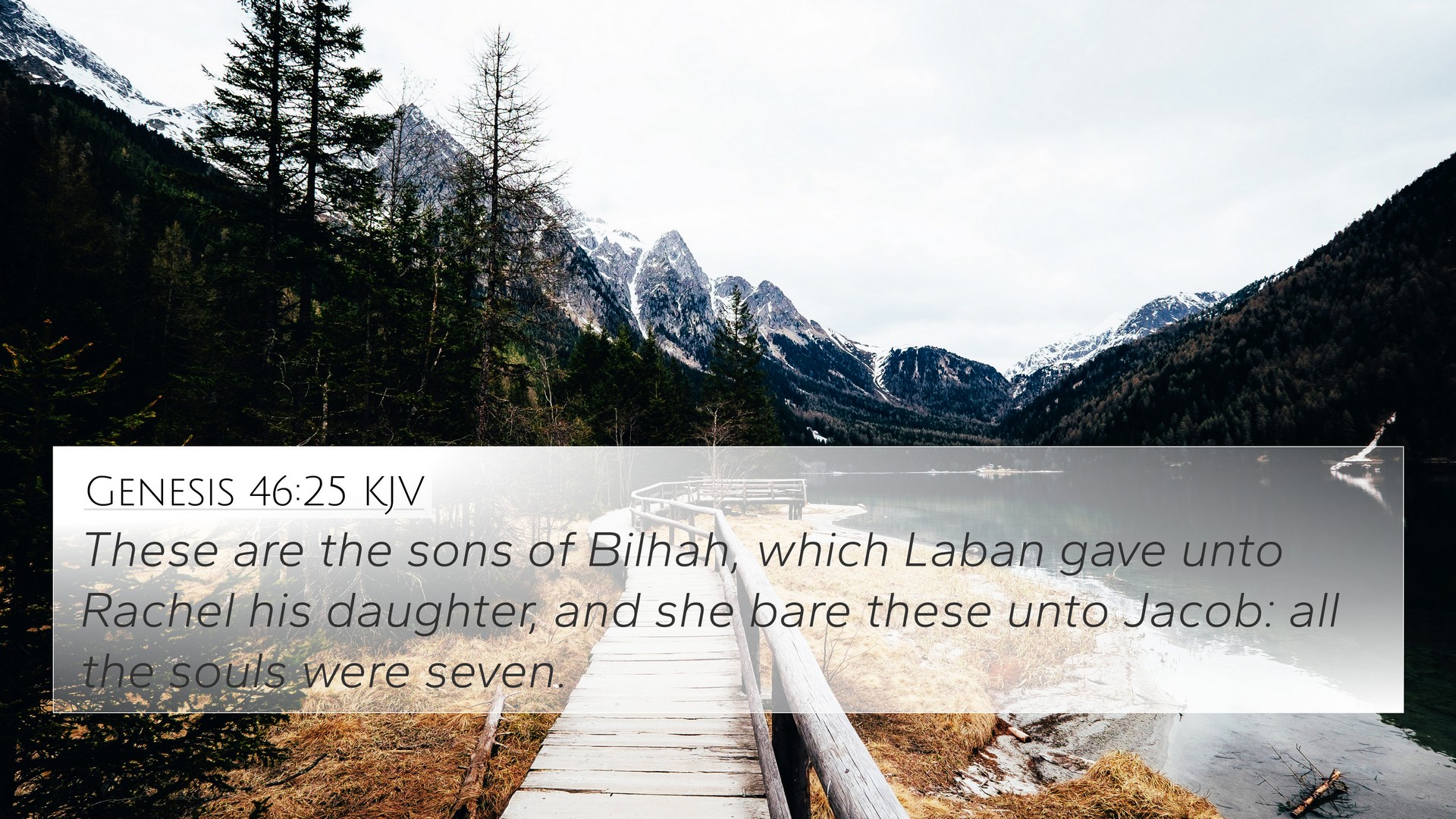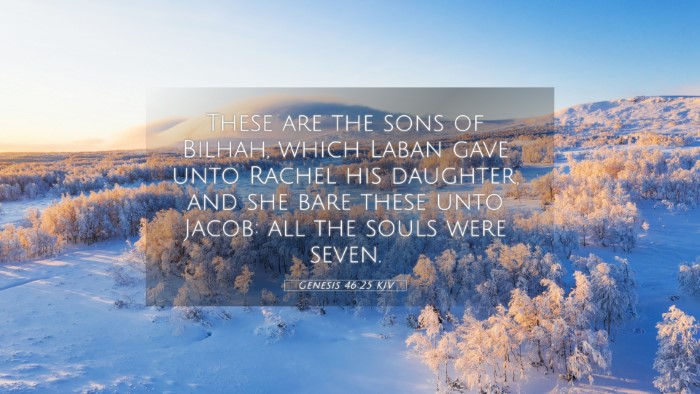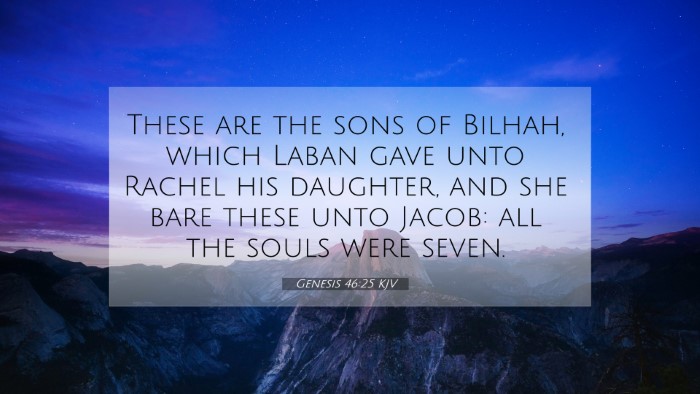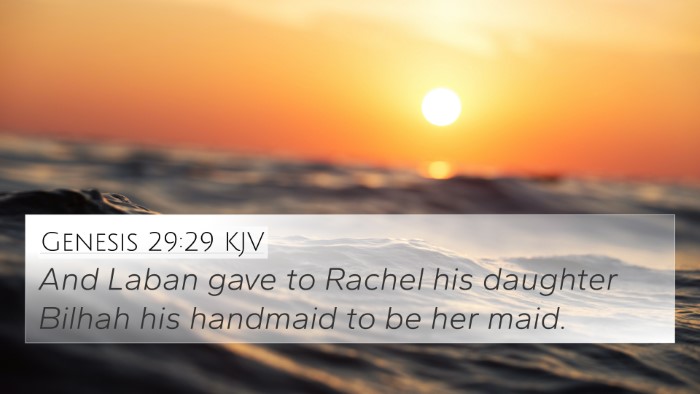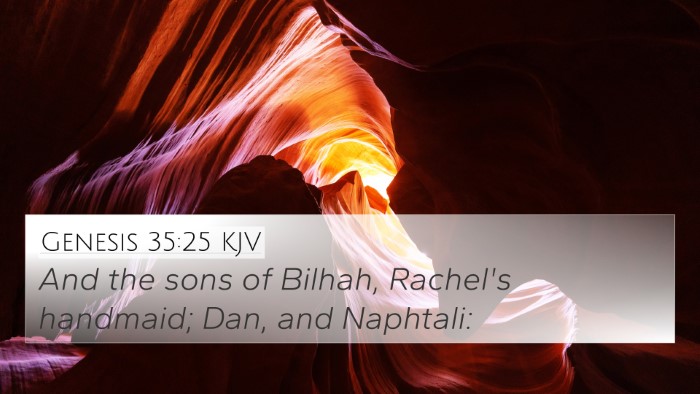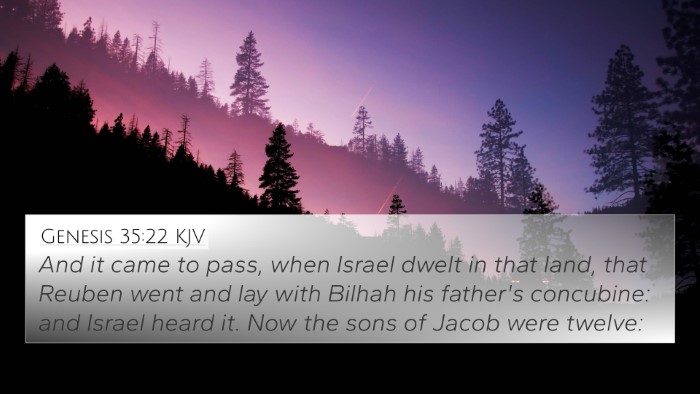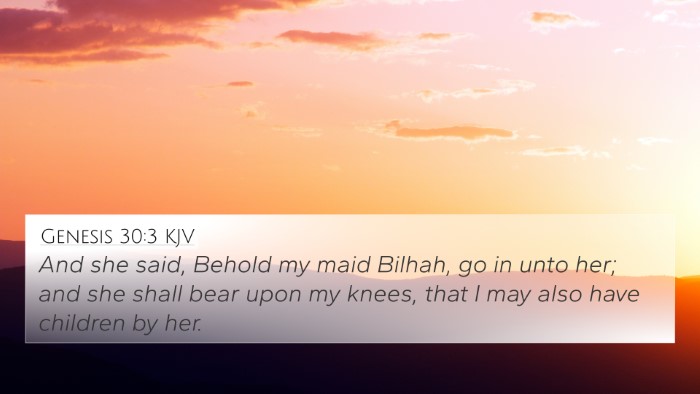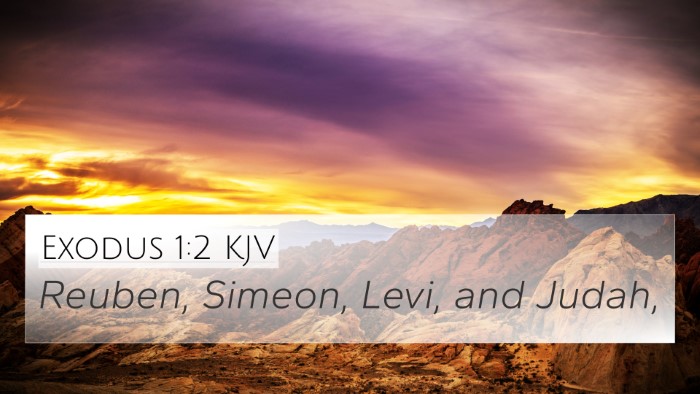Meaning and Analysis of Genesis 46:25
Genesis 46:25 reads: "These are the sons of Bilhah, whom Laban gave unto Rachel his daughter, and she bare these unto Jacob: all the souls were seven." This verse is a part of the genealogy of Jacob's descendants as they prepare to move to Egypt.
Contextual Significance
The context of this verse lies within a pivotal moment in the narrative of Jacob and his family, marking their transition into Egypt for survival. Understanding this verse requires exploring the broader themes of family, providence, and the fulfillment of God's covenant with Abraham, Isaac, and Jacob.
Insights from Commentaries
- Matthew Henry:
Henry emphasizes the importance of families and their genealogies in Scripture, noting that they reveal God's providence and ways in history. He highlights the fact that these descendants are a testament to God's faithfulness in multiplying Jacob's lineage.
- Albert Barnes:
Barnes draws attention to the legal and cultural aspects of lineage in ancient times. He mentions how sons born from concubines, such as Bilhah, still carried importance and were counted in the context of God's chosen people, maintaining an emphasis on divine grace and inclusion.
- Adam Clarke:
Clarke provides a thorough analysis of the names and meanings associated with Bilhah's sons, relating them back to the experiences of Rachel and her desire for children. He underlines the emotional backdrop of this list and how birth order and circumstances had divine significance.
Thematic Analysis
This verse encapsulates various significant themes in the Bible:
- God's Promise: It reflects God's promise to Jacob regarding his descendants as part of the covenant established with Abraham.
- Family Dynamics: The verse illustrates the complex family dynamics involving multiple wives and their children.
- Providence in Adversity: The migration to Egypt sets the stage for later events in Exodus, emphasizing God's providence and preparation.
Cross-References and Connections
Genesis 46:25 finds a web of connections with other scriptures. Notably:
- Genesis 30:3-4: This passage discusses Bilhah's role as Rachel's maidservant and her children, establishing the context of genealogical significance.
- Genesis 35:25: Bilhah’s sons are linked back to a previous genealogy in this verse, highlighting continuity in the family tree.
- Exodus 1:5: The descendants of Jacob are further enumerated, showing the fulfillment of what began with Jacob's migration.
- Romans 11:1: Paul discusses the remnant of Israel, emphasizing God's faithfulness to His people throughout generations.
- Revelation 7:5-8: The listing of tribes in Revelation connects with the themes of promised fulfillment and God's ongoing relationship with Israel.
- Genesis 49:16-20: The blessings of Jacob to his sons, providing further detail on the destiny of Bilhah's offspring.
- 1 Chronicles 7:13: This genealogy emphasizes the lineage connection and continuity of these families over generations.
Concluding Thoughts
In summary, Genesis 46:25, while a genealogical entry, serves as a vital reminder of the interplay between human life and divine providence. The themes woven throughout this verse and its connections to other biblical texts underline the depth and richness of Scripture, inviting in-depth analysis and reflection.
